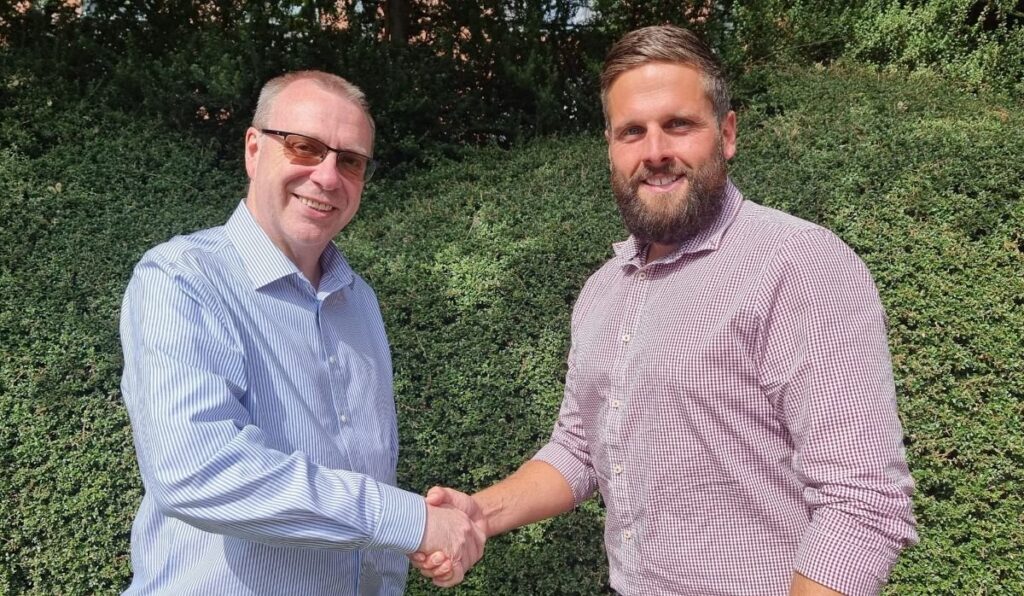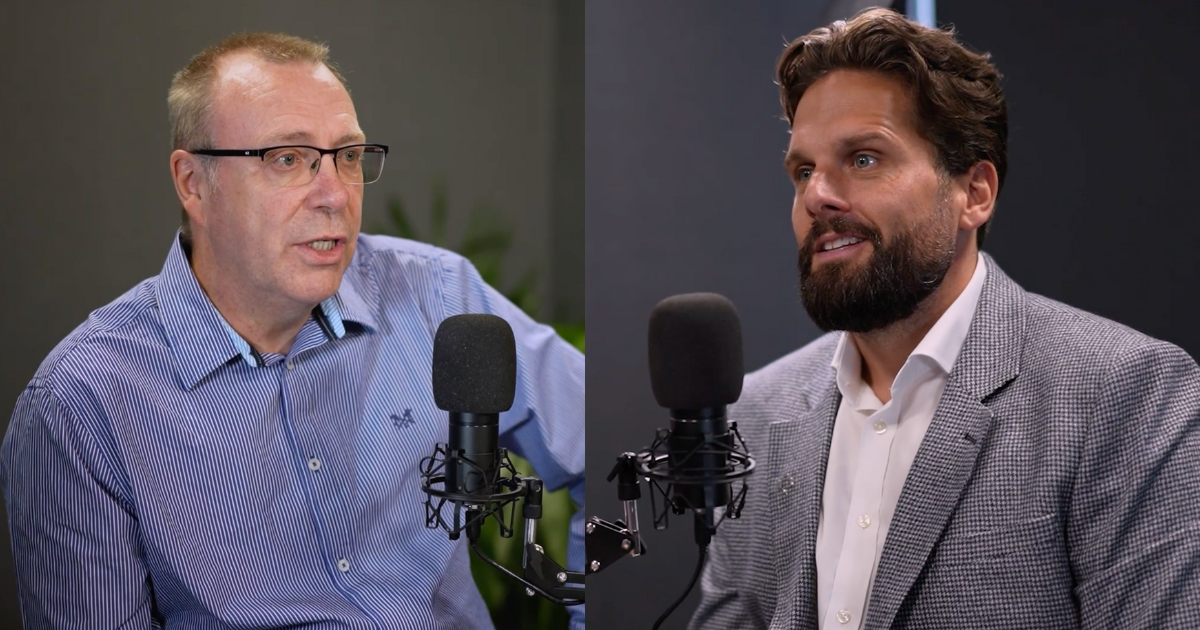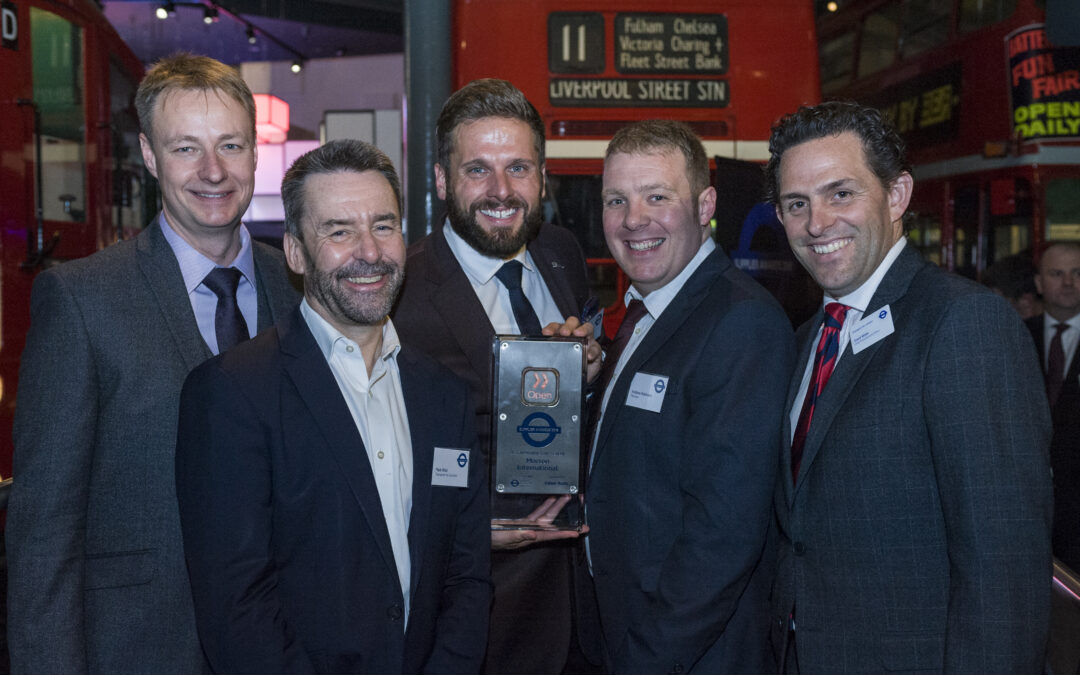Morson Group Training Director, Matthew Leavis and Non-Executive Director, Martin Jones discussed several key topics regarding the future of the rail industry on a recent podcast. From the skills challenges we are currently facing to how technological advancements will affect training going forwards and more.
Matthew Leavis:
Martin, thank you for joining us. Could you just take a minute to tell us a little bit more about yourself, your history, and how you’ve come to be a non-executive at Morson?
Martin Jones:
Yeah, thanks, Matt, and thanks for the invite. Well, I was lucky enough to join the industry at the age of 16 as an apprentice, which seems a long time ago now. I joined London Underground and spent two great years there as an apprentice and then became a signal station supervisor and following that, a booking clerk.
In 1987, I became a trainer. That’s when I truly, found my vocation. I was an operations trainer and did all sorts of training within London Underground, then became a leadership management trainer and then moved into management, managing the operations part of training for London Underground. I became the leadership training manager and then after 21 years, I got a phone call to come and join Network Rail. I joined Network Rail just as it was coming out of receivership from the rail track time and my role there was Operations Training Manager. That was to bring the operations training department into one cohesive organization, build a couple of new training centers and start that journey.
I did that for a few years, then became Head of Competence, and following that, I became Head of Skills Training, which I loved. I looked after all the training centers throughout the country. After 21 years, which was months ago, I decided to leave Network Rail and I started my own new bit of consultancy and was lucky enough to get a call from yourself at Morson.
I worked with Morson a lot during my time at Network Rail and came to visit Morson Group. There’s a lovely feel to Morson, it feels really good as an organization and a company that cares a lot, is passionate about what they do and that sort of moves itself into your area, which is Morson Training. So, I was more than happy to join as a non-exec at Morson.
Matthew Leavis:
It’s been a great journey to have you with us. I think it’s safe to say that you understand quite a little bit about training and development and the landscape of our industry. This is what we’re here to talk about today, the skills agenda that we’re facing as an organization and as a group, but also industry-wide, the challenges that are going to be faced over the coming five years.
So, what’s your take on the current skills crisis? As we keep hearing in the industry and some of the challenges that we’re going to face in the coming five years?
The current skills crisis in rail:
Martin Jones:
Well, I think it’s enormous. Neil Robertson released a paper, I think, in September 2022, which talked about the crisis of skills within the industry and, he gave an example of a project, £96 billion, which over 5 to 10 years could mean 13,000 jobs every year for those 5 to 10 years.
That on its own is a bit scary. And then when you put that together with an aging labour force with potentially 50,000 people leaving the industry by 2030, the race to recruit into our industry is an enormous one. This then puts pressure on the training delivery, within the industry. So, we have heard over several years about the skills issues that we have within our industry. There are real issues.
Matthew Leavis:
It’s a really interesting point that the skills challenge that we’re facing across our industry from an operational perspective, obviously has an impact on the skills agenda within training delivery. Sometimes people forget that to become a trainer, you have to have most of the time in our industry, a level of operational and occupational competence. So, with a £96 billion plan for investment over the next five years and 12,000 jobs required every year, what is the impact on training?
Five years in the current landscape, we’ve seen especially since COVID, the generational change in the speed at which society is changing the utilization of technology with the rapidly changing use of AI and change. How does that impact the training industry as a whole? And what can we take away from that as an organization? Some of the things that you’re looking to bring to people that you work with within your own consultancy around addressing the skills crisis that comes out of a skills crisis?
What impact will the skills crisis have on training?
Martin Jones:
Yeah, that’s a really good question. I mean, I think we start by saying what we do know is that there are some really dedicated people within the training space, both within the organisations that I’ve worked for and in the supply chain. For people that have stayed in the organisation, it’s a difficult space to work in. There’s not a lot of thanks within it. You have to be quite dedicated to the cause to stick with it and it’s a difficult time at the moment.
Matthew Leavis:
Could be seen as more of a vocation than it is.
Martin Jones:
We’ve been lucky enough to work with quite a lot of those people. It’s interesting that I’ve been lucky enough to do a bit of work over in Toronto with a company called Metrolinx and worked with some really interesting people over there dedicated to exactly the same. They’re facing exactly the same sort of issues that we faced in the UK.
It’s trying to understand what it is they need to do to effectively recruit for the future. In terms of talking about training specifically now, you and I both know that trying to recruit trainers into our industries, it’s difficult. Even building new training centers. So, you’ve got your training kit, everything that you need to deliver the training. It’s only as good as the person standing up in front of the audience, the customer, the delegate, to deliver that safe engaging training. Over the years, training has pretty much remained the same, a person stands up in front, delivers something, they either do it via PowerPoint, a smart projector, then they go on to a piece of kit and show how it works, etc.
Innovation is coming. It’s needed. When I was at Network Rail, we introduced virtual reality into costs, and to some extent that’s worked really quite well. But there’s other things that we need to think about within the training space. To get that engaging trainer, you have to show people that when they come in to be a trainer, you’re going to support them.
It is a vocation. It is something that is not easy. It’s not an easy choice to stand up in front of people and deliver training. So, to be a trainer, you have to think about a number of different things. You have to be competent in the subject you’re delivering and try to maintain that competence and understand the changes that are going on.
But more importantly for me, I think, is how you maintain your competence as a trainer. What’s the continual professional development that you’re going to do in order to make yourself better at delivering training?

What does the future of rail look like?
Matthew Leavis:
Martin, as we’ve discussed, there is £96 billion worth of investment in the next five years, which is going to generate potentially 12,000 new staff per year. That operational skills crisis, as we’re calling it, how does that impact on training providers such as ourselves as we move into this new world with all of our goals and objectives that we’ve worked on together sometimes and with wider stakeholders? What do you think the new landscape means to us and what can other people take away from that in our industry, whether that be our partners, our suppliers, our current existing trainers? What does the future look like based on the skills demand of the operational industry?
Martin Jones:
I think that’s a really good question and not an easy one to answer because I think there’s still quite a lot of uncertainty within the industry. You’ve got great British Railways coming along. We still don’t fully understand what that means to us. We do know that there’s this skill shortage and we do know that we’re going to have to recruit to that shortage.
What I have seen over the years is far more collaboration within the industry, but it’s not where it needs to be. Now that collaboration between the Network Rail and the suppliers isn’t as close-knit as it needs to be when there is uncertainty, changes in work, in practice, etc.. So, I think there needs to be far more collaboration in order for us to move forward in a meaningful way.
That doesn’t mean we’re not moving forward in any sort of meaningful way. There’s been lots of work done. I can talk for Morson in terms of the quality that you give. I can talk to the people that you have delivering training for you.
Matthew Leavis:
Some of the best in the industry as well. I’m biased, of course, but I feel we’ve got some of the best teams in the industry.
Martin Jones:
Yeah, there are some good people and there’s some good people delivering training for other providers and within Network Rail and we just need to share and collaborate in terms of best practice and more importantly, understanding what innovations are going to come along to help us deliver that training in a more effective, efficient way.
How do we future-proof against technological change?
Matthew Leavis:
I think one of the things we’re seeing, because we have started that collaborative process, it’s really interesting that you mention it, we were obviously quite proud to be announced as Network Rail’s strategic partner and master vendor for safety and track.
It’s an amazing piece of work. But I think it’s a step change and a real shift within the industry that senior stakeholders in Network Rail have realised is that collaboration that is needed. Bringing on a supply chain such as ourselves as a master vendor, to then bring people closer to the table, to have these discussions is really important. I think what that’s going to do long term is allow us to have a voice that is a little bit more coherent and heard because instead of it being fragmented, actually the largest buyer of training in the industry is saying, we want to hear what you have to say.
We want to hear the challenges that you face and actually, we want to help you create a sustainable future for the industry that we know will have to address the skills crisis and the skills gap. Coming from a tech perspective, coming from an AI perspective, but also ensuring that we’ve got the right people, whether that’s directly working for us or whether that’s through our dedicated supply chain. I think the skills crisis that we’re talking about is a really interesting sort of topic that we could probably go on about for quite a long time to come. With the planned investment being so significant, a percentage of that is going to have to go into training infrastructure.
Infrastructure is massively important. We’d like to obviously get the benefit of utilizing network rail, which is part of the master vendor strategic partnership. We will have access to all of those facilities. What does the tech implication of the skills crisis or the solution for the skills crisis look like? How do we futureproof ourselves as an industry and an organisation against the technological change that we fear is coming in reference to what we’ve discussed a few times?
Martin Jones:
Yeah, I think that’s another really good point because in some ways we don’t fully know what that is. We can’t feel it, we cannot see it. We have to guard ourselves against it. When we introduce new technology, there’s a lot of time spent on the technology itself, what it does, how it’s going to help make the railway more efficient.
There’s very little time spent on understanding how it’s going to impact individuals and both the user plus the deliverer. As a trainer of that new technology, they are as important. So any time new technology is introduced, we have to make sure that we don’t forget the people element, plus the training of the trainer element. So, the trainer fully understands the business impact of any new technology that’s going to be introduced onto the system and therefore they can train, develop, coach, mentor, facilitate what that looks like going forward.
It comes down to communication again and collaboration to understand what that looks like, what is coming around the corner in the next five, ten, fifteen years. So, we got ourselves ready. Far too often we’ve introduced and this is my experience with the Network Rail, we introduced a new piece of kit onto the railway, we forget that there’s a training department and the first you hear about that is when somebody said, ‘We’ve got this new bit of kit, can you train our people?’ Then we have to charge and retrofit that training for the people who are actually going to be responsible for delivering it.
Conclusion:
Matthew Leavis:
Now, it’s probably safe to say then to draw a conclusion from that one and maybe to draw a conclusion to this conversation is we’ve got a skills challenge ahead of us that actually will be one that we need to start addressing at a grassroots level. A lot of work needs to go into preparing the future generations for our industry that will be open to this change, open to these technological advancements, but also probably have a set of skills that don’t currently exist in the industry where utilization of that sort of technology, either the virtual reality, the augmented reality becomes a second nature.
I think it’s something that we have to take away as an industry and invest in the future talent and the current existing talent. who are the backbone of our industry, but ensuring that we’re fighting on multiple fronts to develop the next generation of trainers.
Martin Jones:
I would agree and the next generation of people are going to come and work in the industry. I mentioned at the beginning that 50,000 people will potentially leave the industry by 2030. What we need to be doing is making sure that the younger generation are coming into our industry That younger generation are a different generation. They’ve grown up with technology. They want to be trained on an iPad or a smartphone or whatever it is. They don’t want to be sat in front of a smartboard. They want to be doing something different. More immersive.
Matthew Leavis:
Yeah, that’s a really good point. And I think one that we need to take away and consider as part of our strategic partnership with Network Rail and part of our ongoing delivery across the industry, not just in that one partnership, I think is one of an organization that we have to consider for the future. I know that Morson as an organization with all of their commitments to STEM will definitely start taking on that challenge head on.


